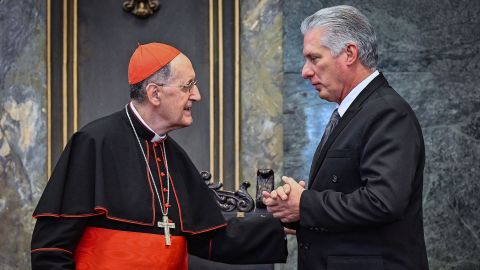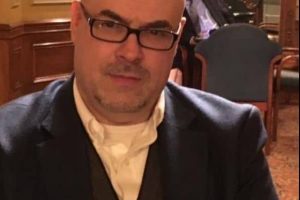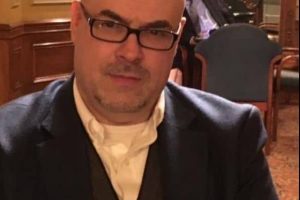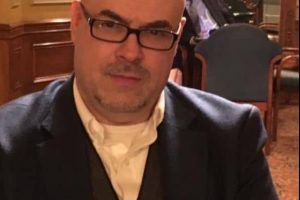
Havana
CNN
—
Marta Perdomo agonizes day and night for her two sons Jorge and Nadir, jailed in Cuba for taking part nearly two years ago in the largest anti-government protests since the 1959 revolution. A call she says she received in late February from Cuba’s internal security service only added to her anxiety.
“State security called me and asked me if my sons had passports. That alarmed me because then I thought they should know if my sons have passports,” she told CNN.
When Perdomo asked why, the answer she said she received back from the agent from the other end of the line was cryptic.
“They told me there are ‘things on the table,’” Perdomo said.
Perdomo’s sons are facing lengthy prison sentences but she and other families have taken hope from a recent mass release of prisoners in authoritarian Nicaragua, a close ally of Cuba’s. More than two hundred jailed government opponents there were stripped of citizenship and sent to the United States in February.
One Catholic Cardinal appeared to allude to a similar possibility during an unusual visit to the island in February to met with Cuban President Miguel Diaz-Canel. In a brief exchange with reporters, Cardinal Benaimino Stella said at the behest of Pope Francis he had pressed for the release of the more than 700 people the Cuban government has charged or convicted for their involvement in the protests.
“The Pope very much wants there to be a positive response,” Stella said.
“Amnesty, clemency, whatever it is called. The words are secondary. “It is important that the young people who at one time spoke out in a way we know about can return to their homes,” he said.
On July 11, 2021, Cubans, frustrated at power cuts and food and medicine shortages, poured into the streets. Many demanded freedom and that Diaz-Canel leave power.
Labeling the protestors “vandals” and “counter revolutionaries,” Diaz-Canel ordered police and those faithful to the government to restore order. Hundreds of people were arrested and later faced mass trials.
US President Biden, who had earlier promised to return to the détente of the Obama era, when diplomatic relations were restored for the first time with the Cuban government following more than a half century of severed ties, criticized the crackdown at the time.
He placed economic sanctions on officials believed to be involved in crushing the protests and called Cuba “a failed state.” In discussions with their Cuban counterparts, US diplomats told them the US-Cuban relationship would likely stay frozen if the protestors remained jailed.
Cuban officials offered little indication the pressure campaign to release the protestors was having any effect.
Nevertheless, given last month’s talks between the Catholic Church and Cuban government, European diplomats in Havana told CNN that they were preparing to issue humanitarian visas to any prisoners who might be released by the government and leave the island for exile abroad.
The diplomats cautioned it was unclear how many prisoners, if any, would actually be released.
But the Catholic church has had success in the past securing the release of prisoners from Cuban jails. Ahead of visits by Popes Benedict and Francis to the communist-run island, the Cuban government agreed to release thousands of prisoners.
And as part of the secret talks to normalize relations with the Obama administration, some of which took place at the Vatican, Cuba also agreed to release 53 Cubans from their jails that the US considered to be political prisoners.
Cuban officials did not respond to CNN requests for comment on the negotiations for the prisoners’ release.
It is still not clear what Cuba might gain from a new prisoner release, though the Cuban government has pushed for relief from crushing US economic sanctions that officials say are contributing to a mass exodus of people from the island.
Following his State of the Union speech in February, Biden was overheard telling Senator Bob Menendez, a proponent of tougher sanctions on the Cuban government, “I gotta talk to you about Cuba.”
The remark was interpreted by many Cuba watchers as a sign that changes are coming to the relationship.
In the most suggestive comments yet that the US is negotiating for the release of the jailed demonstrators, the Assistant Secretary of State for the Western Hemisphere Brian Nichols said on Tuesday while speaking on Cuba policy in Miami: “Publicly – and privately in discussions with Cuban officials – the US government continues to call for the release of political prisoners. And we always stress that the Cuban people should be able to choose where to live and the government should allow its citizens to return to Cuba.”
“While we strongly oppose forced exile,” Nichols continued. “The United States will not turn its back on political prisoners, and if they want to come to America, we will explore available avenues under US law to welcome them.”









